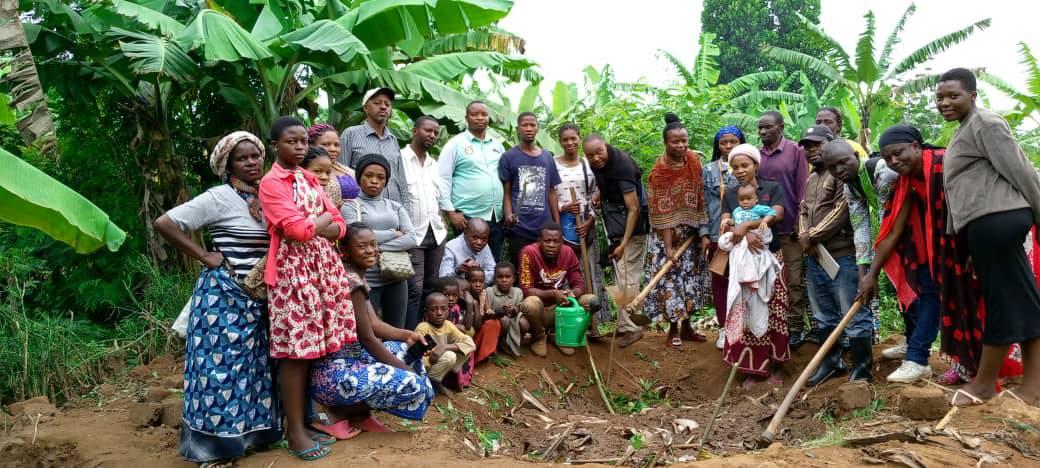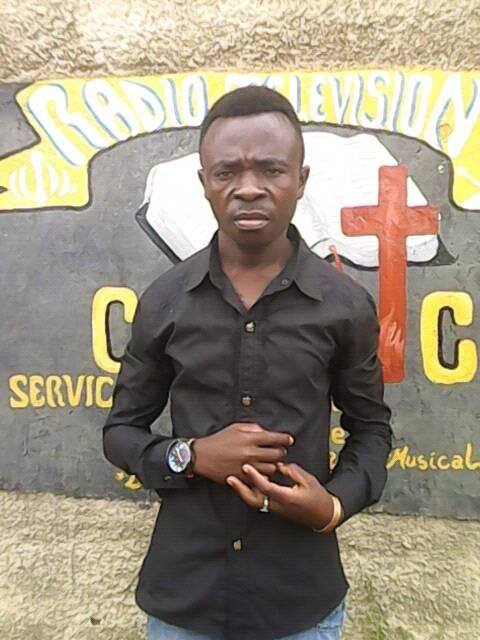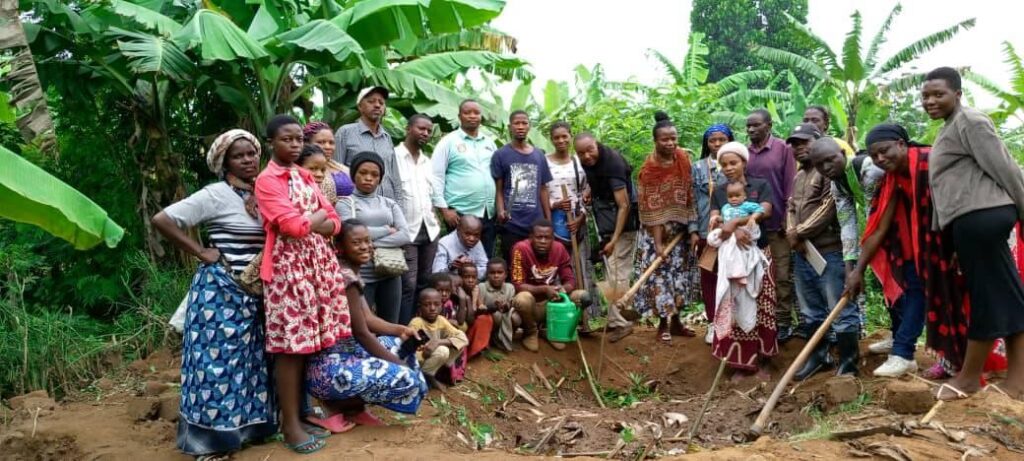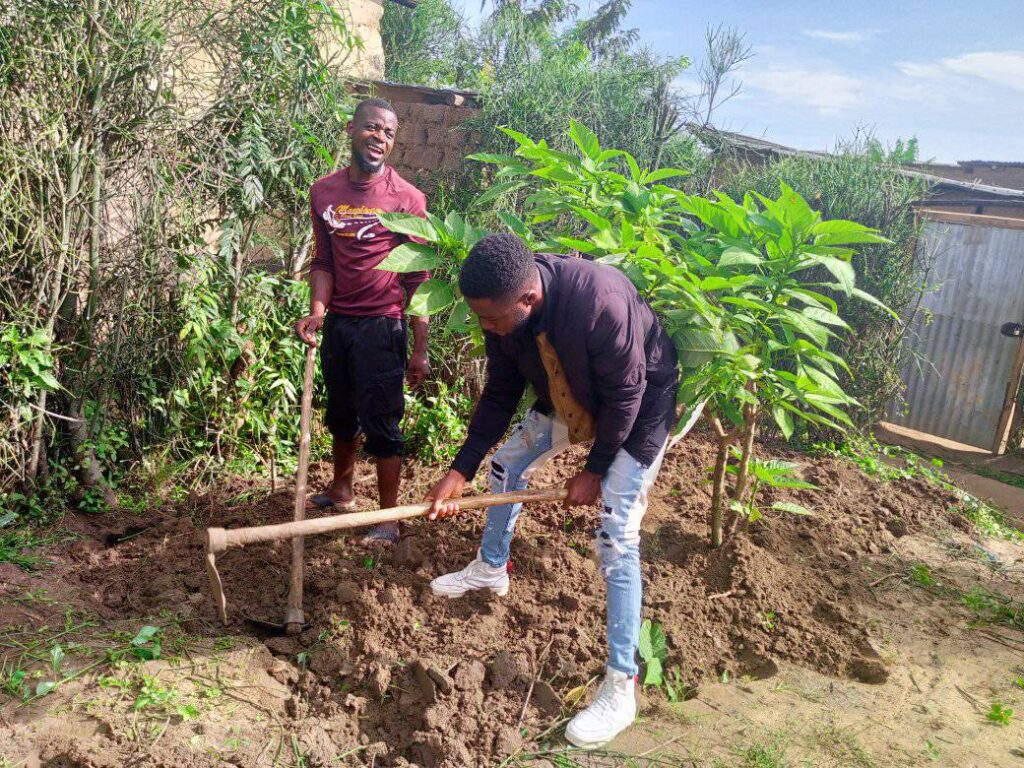
JULIA LEE BARCLAY-MORTON – YOGA, WATER AND REWRITING AUTISM
I interviewed writer Julia Lee Barclay-Morton about her experience of autism. Julia began as an experimental dramatist in New York, moving to the UK to


I interviewed Mulumehoderwa Balangalizi Jean Peter a refugee, originally from Kivu in the Democratic Republic of Congo. Jean Peter is the founder and CEO at the Unity for Sustainable Development Centre in Uganda. Jean said: “I am the fifth child out of ten in my family. I was forced to leave my country in 2016.”
Leslie: Can you tell the story, please, of what happened to make you leave your country and what happened when you arrived in Uganda.
Jean Peter: I left the DRC because my brother was kidnapped while we were boarding, at university, in Bukavu. By then I had spent two years learning English at Wisdom Learning Center. Being exiled to the Nakivale refugee settlement in Uganda was hard. I lived at subsistence level through farming, fishing, and sometimes getting help from outside churches. I barely had enough to live on.
Leslie: If I visited If I visited the Nakivale refugee settlement in Uganda, what would it look like? What would I see people doing? What are the problems and the good things about the settlement?
Jean Peter: Nakivale is in the Isingiro district of Uganda. It has more than 140,000 refugees from different countries (DRC, Somali, Ethiopia, Burundi, Rwanda,…). The refugees run small businesses, farm, fish and build with bricks. They are good at what they do. But the refugees are facing challenges such as poor education, poor medical services, poor water for health, bad accommodation and no access to the services they would get as nationals.
Leslie: You founded the Unity for Sustainable Development Center. Tell us about what happens there and how it began, grew and developed.

Jean Peter: It started as a club for inspiring youths and other people. Our aim was always to help our fellow refugees specially the orphans, widows, vulnerables and others people in need. But we were only allowed access to a small patch of land. The result was some refugees stole from the host community’s gardens. So there were real tensions between the two groups. This was particularly frustrating because we had arrived with a team of well-trained farmers who could work much more land than we were given. But we got on with training people in different vocational skills, and adapted to different ways of growing-your-own. This was particularly urgent because the refugees’ monthly food and cash allowance wasn’t enough to survive on and has been repeatedly cut back by the Ugandan Government. So a refugee in 2020 was receiving 31,000 shilling, equivalent to $9.5. In 2021 the government reduced it to 19,000 shilling, equivalent to 5.2$, then further reduced it to 13,000 shiiling, equivalent to 3,5$.
Leslie: What are the challenges facing the Unity Sustainable Development Center? How have some of these problems been overcome?
Jean Peter: There are a lot of things we lack. So, although we call ourself Unity for Sustainable Development Center, we don’t have a permanent location where refugees can go to learn skills. We keep having to shift around. We also need a school for our children and a clinic or hospital where our mothers can give birth and where we can all have the same medical treatment as other human beings. We need clean water to serve our community and we need computers or laptops and phones to help us in our office work.

But we do have people with warm hearts ready to do anything, and since starting two local churches have donated clothes and seeds to our community. We also 25 staff who continue to volunteer and help the community. But the people they help face the sort of problems that weaken their drive to self-help. This is something we need to change. We also get let down by some people who say they will give us books, uniforms, school bags for children but fail to deliver.
Leslie: How do you try to stop food waste?
Jean Peter: We encourage people to create a meal plan so the ingredients fit the number of eaters and are used efficiently. We also encourage everyone to buy ugly food and use the leftovers creatively, which could be saving and eating them safely or composting. Storing food appropriately is another important way of avoiding food waste. We have a motto: “No food should be wasted while our fellow human beings are still looking for it.”
Leslie: How can readers of this interview support your work?
Jean Peter: By providing us with some donations through Leslie*. That way we could get a permanent location, a school, an orphanage, a clinic as well as farms, water taps, a computer hub,.. and also pay the staff wages!
Next week I interview A Good Catch Circus whose experimental work questions what is lacking in the circus art-form.
ABOUT LESLIE TATE’S BOOKS:

I interviewed writer Julia Lee Barclay-Morton about her experience of autism. Julia began as an experimental dramatist in New York, moving to the UK to

I interviewed Gillean McDougall from Glasgow, who edited the collaborative projects Honest Error (on Charles Rennie Mackintosh and his wife Margaret Macdonald) and Writing the

I interviewed French writer Delphine de Vigan, whose book, No et moi, won the prestigious Prix des libraires. Other books of hers have won a clutch

I interviewed Joanne Limburg whose poetry collection Feminismo was shortlisted for the Forward Prize for Best First Collection; another collection, Paraphernalia, was a Poetry Book Society Recommendation. Joanne

I interviewed Katherine Magnoli about The Adventures of KatGirl, her book about a wheelchair heroine, and Katherine’s journey from low self-esteem into authorial/radio success and
| Cookie | Duration | Description |
|---|---|---|
| cookielawinfo-checkbox-analytics | 11 months | This cookie is set by GDPR Cookie Consent plugin. The cookie is used to store the user consent for the cookies in the category "Analytics". |
| cookielawinfo-checkbox-functional | 11 months | The cookie is set by GDPR cookie consent to record the user consent for the cookies in the category "Functional". |
| cookielawinfo-checkbox-necessary | 11 months | This cookie is set by GDPR Cookie Consent plugin. The cookies is used to store the user consent for the cookies in the category "Necessary". |
| cookielawinfo-checkbox-others | 11 months | This cookie is set by GDPR Cookie Consent plugin. The cookie is used to store the user consent for the cookies in the category "Other. |
| cookielawinfo-checkbox-performance | 11 months | This cookie is set by GDPR Cookie Consent plugin. The cookie is used to store the user consent for the cookies in the category "Performance". |
| viewed_cookie_policy | 11 months | The cookie is set by the GDPR Cookie Consent plugin and is used to store whether or not user has consented to the use of cookies. It does not store any personal data. |